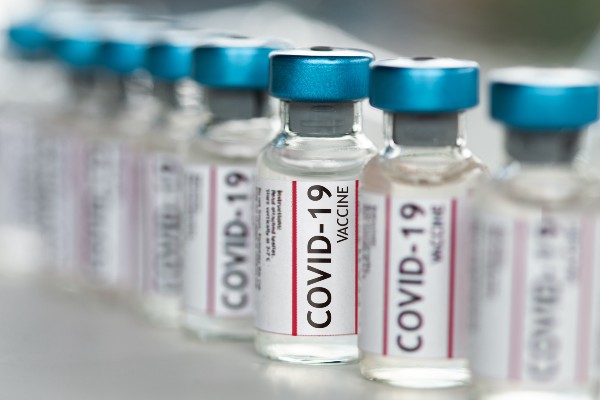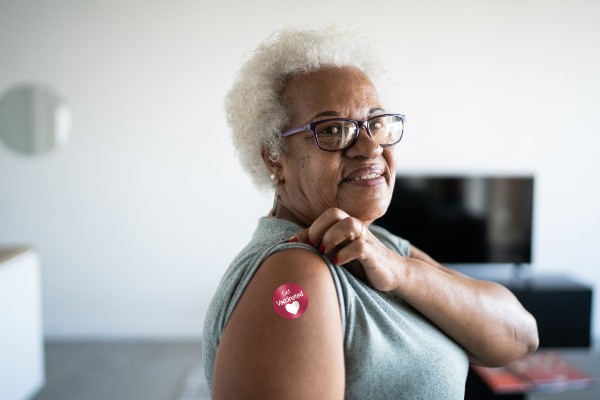When will we be able to hold unmasked gatherings, take carefree vacations, or simply give out handshakes again? While much is still unknown about how post-COVID life will look and how soon we'll get there, experts have long agreed that finding a successful vaccine will be a crucial turning point.
Recently we've seen some promising results from a few COVID-19 vaccine clinical trials, signaling that help could soon be on the way. But perhaps you have questions or are even skeptical about taking a new vaccine.
Let's look at what we do know about where the COVID-19 vaccine stands.
Have scientists found an effective COVID-19 vaccine?
It appears so! More than 100 different vaccine candidates are currently being tested. Some are in the final "Phase III" trials (where the vaccine is evaluated against a placebo in a study that involves tens of thousands of volunteers).
On December 2nd, the U.K. granted emergency authorization for a vaccine created by Pfizer and BioNtech that had a 95% efficacy rate in clinical trials. Pfizer filed Phase III data with the U.S. Food and Drug Administration (FDA) in November. The FDA has meetings schedule the week of December 7, 2020 to review the data and consider Emergency Use Authorization (EUA), with an EUA possible as early as December 11,. Moderna has also submitted Phase III clinical data to the FDA, with data to be reviewed December 17, 2020.
When will the COVID-19 vaccine be available?
Some people may be able to get vaccinated before the end of the year if the FDA authorizes a vaccine for emergency use.
Who will receive the vaccine first?
The vaccine will be distributed first to those deemed high priority. Healthcare workers, long-term care residents, essential workers and individuals at high risk of complications from COVID-19 disease (such as those over age 65 and other high-risk patients) will most likely be in the first priority groups.
What happens next? Will it be available to everyone?
Depending on vaccine supplies and individual health status, older adults could qualify to receive the vaccine next since people over 65 are more vulnerable to disease and death from COVID-19. Additionally, essential workers and other at risk populations will receive the vaccine earlier in the process.
Eventually, everyone who wants a vaccine should be able to get one. Depending on how the vaccine is stored and transported (for example, some require very stringent temperature control), it could take longer to reach some geographic areas.
It's important to note that none of the top vaccine candidates have included children in clinical trials. Because vaccines can affect children differently than adults (and because the vast majority of infected children experience mild cases), kids will have to wait longer for the COVID vaccine.
How will I know if the vaccine is safe to take?
Rest assured that any COVID-19 vaccine or treatment that's made available will have gone through extensive scientific research and testing. This stringent review process—widely regarded as the "gold standard" across the globe—will involve highly credible agencies like the National Academy of Sciences, the National Institutes for Health and the FDA.
Can I get coronavirus from the vaccine?
No. The COVID-19 vaccine won't use the virus itself to create an immune response. Instead, it will contain other substances (like proteins) that help your body recognize the virus and fend it off.
For example, the Pfizer and BioNtech vaccine currently under review contains a protein that mimics the protein "spike" on coronavirus cells. These cells train the immune system to recognize the foreign virus cells and produce antibodies to destroy them.
What will the side effects be?
So far, side effects appear to be mild to moderate in nature. In the Pfizer and BioNtech Phase III clinical trial, some people had some soreness around the injection site, fatigue, headache, chills, fever or muscle pain.
How long after the vaccine will things return to 'normal'?
While we're all yearning for the return of pre-pandemic normalcy, it may take time to achieve the widespread distribution that will effectively limit community spread. And while the vaccine can prevent you from getting sick, we still don't know whether vaccinated people can carry and transmit COVID-19 to others.
The bottom line? Plan to continue taking precautions like mask-wearing and physical distancing, knowing that these new vaccines represent a turning point (and a light at the end of the tunnel).
Learn more about the COVID-19 vaccine.
Related:
Learn more about the COVID-19 vaccine.
COVID-19 resources



